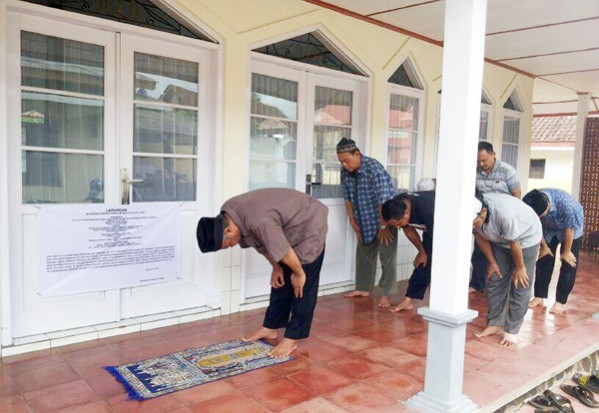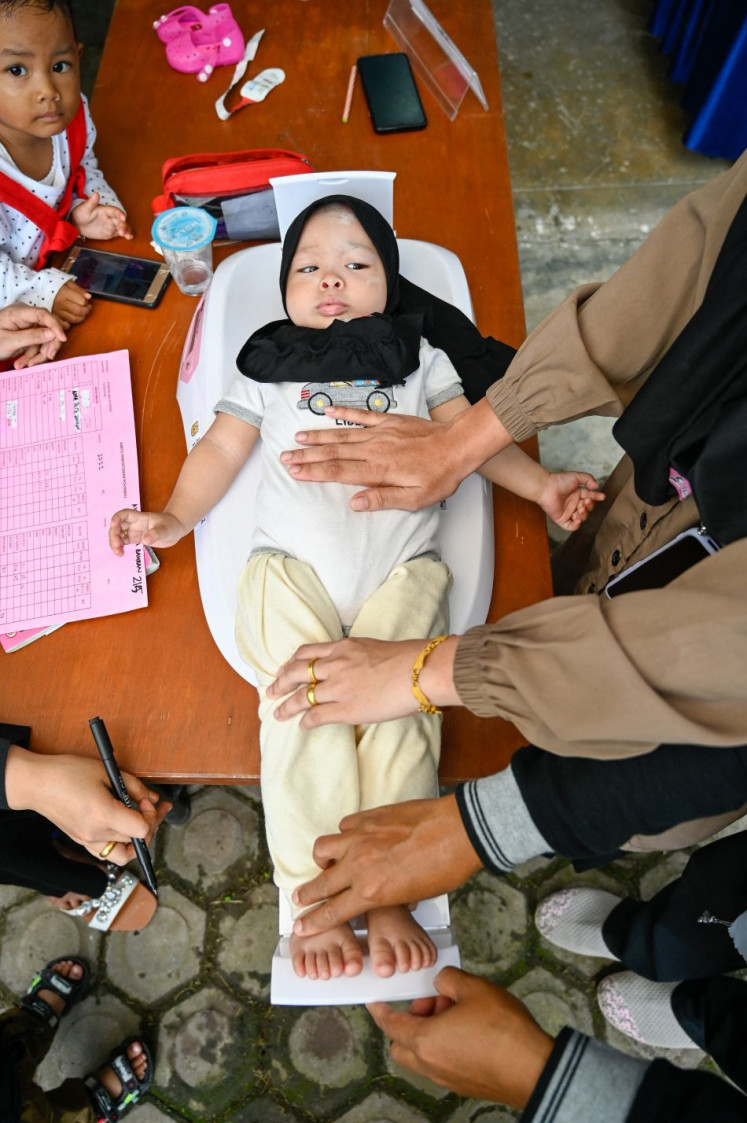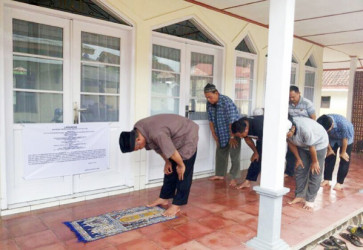Popular Reads
Top Results
Can't find what you're looking for?
View all search resultsPopular Reads
Top Results
Can't find what you're looking for?
View all search resultsAhmadiyah: In search of sustainable interfaith harmony
Hoaxes and hate speech against the Ahmadiyah community, which have been created and spread since the beginning of the Reform Era in 2000, are powerful because they involve politicians and tuan guru (Muslim leaders).
Change text size
Gift Premium Articles
to Anyone
I
t has been almost 16 years that the Jemaat Ahmadiyah Indonesia (JAI) community has been staying at the Wisma Transito shelter in Mataram, West Nusa Tenggara as internally displaced persons (IDPs) after their expulsion from their homes in West Lombok, East Lombok, and North Lombok by an intolerant group.
Over the last few years, there has been progress in delivery of public services to them, including provision of ID cards, BPJS health insurance coverage and Keluarga Harapan social assistance for the poor. Currently, some of the Ahmadis have left the shelter and bought new homes, although 43 displaced families remain in the shelter in poor conditions. Beyond access to public services, more should be done to ensure sustainable interfaith harmony, which will allow minority groups such as Ahmadiyah to live in peace wherever they wish across the country.
Indeed, no conflict involving local communities and the Ahmadiyah followers in Mataram has been heard. Instead, clashes erupted in neighboring regencies such as North Lombok, West Lombok and East Lombok. While the Mataram city government deserves our appreciation for sheltering the IDPs, there needs to be a shift in understanding interfaith harmony not merely as the absence of conflicts, but how to actively ensure long-lasting interfaith harmony.
SETARA Institute’s field research in Mataram in August found that several city government institutions prided themselves for having accommodated the Ahmadis in the city and for the absence of acts of violence against the minority group. The provincial interfaith organization (FKUB) shared the same view, saying no member of the JAI community had ever asked for help from the forum.
But the past violence against the JAI community in East Lombok, including their expulsion in 2018, should remind the provincial FKUB of the vulnerability of the current semblance of interfaith harmony. Without proactive efforts on the part of the local FKUB to promote interfaith harmony, conflicts may occur in the future.
It is worth noting that peace and harmony is not passive. It transcends beyond the absence of conflict. Peace and harmony requires active and continuous efforts to build mutual trust and genuine understanding as well as removing stigma toward each other.
More active roles by the local government and FKUB are crucial as SETARA Institute's field research discovered that, although several Mataram residents have mingled and interacted well with the JAI community, there are still many who do not know the JAI community well and maintain their prejudice toward the minority group. These people are therefore prone to believing hoaxes about and being easily mobilized to act against the Ahmadiyah community.



















